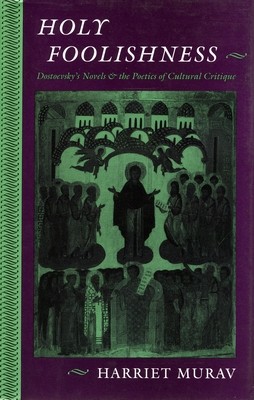
- We will send in 10–14 business days.
- Author: Harriet Murav
- Publisher: Stanford University Press
- ISBN-10: 0804720592
- ISBN-13: 9780804720595
- Format: 14.7 x 22.4 x 2.2 cm, kieti viršeliai
- Language: English
- SAVE -10% with code: EXTRA
Reviews
Description
This work examines the ways in which Dostoevsky's adoption and reinvention of the medieval Russian holy fool in Russian Orthodoxy, a person who feigned madness or folly as an ascetic feat of self-humiliation, serves as a locus for a critique of his culture's increasing reliance on the scientic paradigms of Claude Bernard's physiology, and as a source of formal narrative innovation in his novels. The author first explores the paradoxical hagiography of the holy fool, whose saintly acts are disguised under the mask of demonic folly. She then traces the rise of medical science in the 19th century and the increasing authority of the new scientic models of human behaviour, especially the all-important notion of the normal and the pathological. In its theoretical orientation, the book both builds from and criticizes Bakhtin's work on carnival.
EXTRA 10 % discount with code: EXTRA
The promotion ends in 21d.05:04:47
The discount code is valid when purchasing from 10 €. Discounts do not stack.
- Author: Harriet Murav
- Publisher: Stanford University Press
- ISBN-10: 0804720592
- ISBN-13: 9780804720595
- Format: 14.7 x 22.4 x 2.2 cm, kieti viršeliai
- Language: English English
This work examines the ways in which Dostoevsky's adoption and reinvention of the medieval Russian holy fool in Russian Orthodoxy, a person who feigned madness or folly as an ascetic feat of self-humiliation, serves as a locus for a critique of his culture's increasing reliance on the scientic paradigms of Claude Bernard's physiology, and as a source of formal narrative innovation in his novels. The author first explores the paradoxical hagiography of the holy fool, whose saintly acts are disguised under the mask of demonic folly. She then traces the rise of medical science in the 19th century and the increasing authority of the new scientic models of human behaviour, especially the all-important notion of the normal and the pathological. In its theoretical orientation, the book both builds from and criticizes Bakhtin's work on carnival.


Reviews